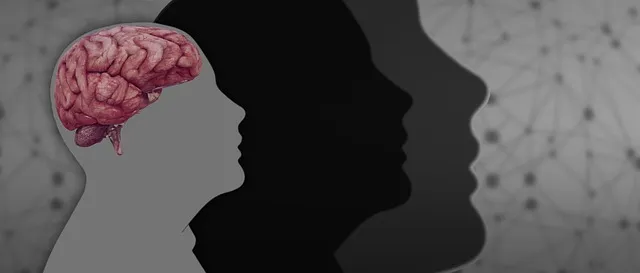Kaiser Permanente training programs in Lone Tree focus on mental health group dynamics for effective facilitation. Facilitators navigate diverse perspectives, use active listening and conflict resolution to create safe, inclusive environments, prevent burnout, and address systemic issues. Through evidence-based practices, cultural sensitivity training, and open communication, practitioners are equipped to offer quality mental healthcare services while fostering a supportive community. Lone Tree model promotes healing by setting clear boundaries, encouraging non-judgmental participation, and incorporating risk assessment techniques, enhancing group session effectiveness.
Mental wellness group facilitation is a powerful tool for fostering resilience and community. This article explores essential techniques for navigating complex mental health dynamics within groups, drawing from valuable insights gained from Kaiser Permanente training programs. We delve into strategies for effective communication, cultivating safe spaces, and learning from successful models like the Lone Tree intervention. By understanding these approaches, facilitators can enhance support networks and positively impact group members’ well-being.
- Understanding Mental Health Group Dynamics
- Kaiser Permanente Training Programs: An Overview
- Effective Communication Strategies for Facilitators
- Creating a Safe and Supportive Environment
- Lone Tree: A Model for Group Intervention Success
Understanding Mental Health Group Dynamics

Understanding mental health group dynamics is paramount for effective facilitation, especially within Kaiser Permanente training programs in Lone Tree. Groups can vary greatly, from supportive networks to contentious debates, reflecting participants’ diverse experiences and perspectives on mental wellness. Facilitators must navigate these dynamics to foster a safe and inclusive environment where everyone feels heard and respected. Techniques like active listening, reflection, and conflict resolution strategies (Conflict Resolution Techniques) are essential tools for managing these interactions, ensuring that discussions remain constructive and productive.
By recognizing potential triggers and individual differences, facilitators can prevent burnout (Burnout Prevention) among both themselves and the group members. Leveraging Mental Health Policy Analysis and Advocacy ensures that conversations not only focus on personal experiences but also consider broader systemic issues affecting mental wellness. This holistic approach encourages participants to connect their individual journeys with larger social and policy contexts, fostering a deeper understanding of collective challenges and potential solutions.
Kaiser Permanente Training Programs: An Overview

Kaiser Permanente Training Programs, based in Lone Tree, offers a comprehensive range of educational initiatives designed to enhance mental wellness support within their healthcare network. These programs cater to various roles, from clinical staff to administrators, focusing on evidence-based practices and industry best practices. One notable area of emphasis is the Risk Management Planning for Mental Health Professionals, ensuring practitioners are equipped to navigate complex situations with cultural sensitivity, an aspect crucial for providing effective mental healthcare.
The training incorporates modules on Anxiety Relief techniques, recognizing and addressing cultural nuances in patient populations, and developing adaptive strategies for diverse client needs. These initiatives reflect Kaiser Permanente’s commitment to continuous quality improvement, aiming to create a supportive and inclusive environment where mental wellness services thrive.
Effective Communication Strategies for Facilitators

Effective communication is a cornerstone for successful mental wellness group facilitation. Facilitators play a vital role in guiding conversations and ensuring all participants feel heard and respected. Kaiser Permanente training programs, particularly those focused on Lone Tree, emphasize the importance of active listening, clear and concise language, and open-ended questions to create a safe space for vulnerable discussions. By adopting Burnout Prevention Strategies for Healthcare Providers, facilitators can foster Self-Care Practices within the group dynamic, encouraging members to share their experiences and offer support to one another.
Incorporating Mental Wellness practices into group sessions not only benefits the participants but also helps in managing potential facilitator burnout. Utilizing simple yet powerful communication techniques allows facilitators to navigate complex topics, promote healthy discussions, and ultimately enhance the overall effectiveness of the group. These strategies are crucial for creating a supportive environment where individuals can explore their mental wellness journey together.
Creating a Safe and Supportive Environment

Creating a Safe Space for Healing
In the context of Kaiser Permanente training programs in Lone Tree, fostering a safe and supportive environment is paramount for effective mental wellness group facilitation. This involves setting clear boundaries and ground rules from the outset to ensure all participants feel secure and respected. The facilitator should encourage active participation while also providing a non-judgmental atmosphere where individuals can openly share their experiences and challenges. By creating a welcoming space, facilitators enable a sense of belonging and trust, which are essential for vulnerable discussions related to mental health.
A crucial aspect is incorporating techniques from the Risk Assessment for Mental Health Professionals to identify potential triggers or concerns within the group. This proactive approach allows for timely interventions and supports individuals in developing coping skills as outlined in the Crisis Intervention Guidance. Through these strategies, facilitators can navigate complex dynamics, ensuring everyone feels heard and supported, ultimately enhancing the overall effectiveness of group sessions.
Lone Tree: A Model for Group Intervention Success

Lone Tree, a renowned model for group intervention success, offers valuable insights into facilitating mental wellness programs, especially within healthcare settings. Inspired by Kaiser Permanente training programs, this approach emphasizes creating a supportive and engaging environment to foster positive change. The technique encourages facilitators to guide participants through a journey of self-discovery, promoting open dialogue and shared experiences.
By adopting Lone Tree’s principles, healthcare providers can enhance their Burnout Prevention Strategies for Healthcare Providers. Through interactive discussions and group activities, individuals build Confidence Boosting mechanisms and cultivate Positive Thinking, which are essential aspects of maintaining mental wellness in high-pressure environments. This model ensures that each participant feels valued and empowered, ultimately contributing to the success of group interventions.
Mental wellness group facilitation is a powerful tool, as evidenced by successful initiatives like the Kaiser Permanente training programs and the model program at Lone Tree. By understanding group dynamics, adopting effective communication strategies, and fostering safe environments, facilitators can enhance support and improve mental health outcomes. Incorporating these techniques, as demonstrated in the Kaiser Permanente training and the innovative approaches at Lone Tree, offers a promising path forward for community-based mental wellness interventions.






